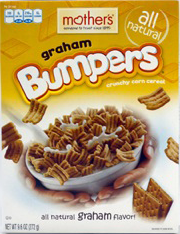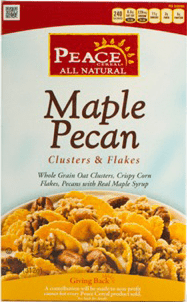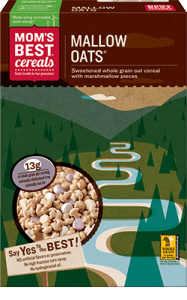
Corporate “natural” definitions vary widely. Generally, “natural” means the absence of artificial ingredients, commonly referencing preservatives. However “natural” does not signify that the ingredients are grown and processed in ways that avoid such “unnatural” inputs as synthetic pesticides and genetically engineered organisms. Various companies’ definitions of “natural” highlight its inferiority to the organic label.
Companies also can blur the line between “natural” and organic with promotional materials for their “natural” labels. They fail to mention that ingredients excluded from the “natural” foods—such as high-fructose corn syrup, hydrogenated oils, and artificial flavors—are prohibited in organic foods. Consumers may believe, therefore, that “natural” foods offer something special, when in truth organic foods offer all those benefits and much more.
One thing is clear, however: Consumers are extremely confused about organic and “natural” labels on foods, too often believing that “natural” claims imply the absence of pesticides and genetically engineered organisms. Recent public opinion poll results, conducted by various research firms, confirm this growing problem.
According to a 2009 report by Mintel, a leading market research company, one-third (33%) of survey respondents trust the term “natural” on labels, and nearly half (45%) trust the term “organic.” However, roughly 30% of respondents say they did not know if they could trust either term. Too many consumers are putting too much trust in the unregulated “natural” term while too many consumers are unnecessarily wary of the trustworthy organic label.
A survey of 1006 consumers conducted by the Shelton Group, a Tennessee-based research firm, 31% of respondents said “100% natural” is the most desirable eco-friendly product label claim, compared to 14% who chose “100% organic.”
Two consumer polls conducted by san Francisco-based research firm Context Marketing, released in 2009 and 2010, showed that more consumers value the term “natural” than “organic.” While 50% of polled consumers said the “natural” label on food was either important or very important to them, only 35% believed “organic” carried the same value.
A 2010 poll by the Hartman Group, a Washington-based research firm, found a majority of respondents erroneously believed the term “natural” implied “absence of pesticides,” “absence of herbicides,” and “absence of genetically modified foods.”
 Making matters even more confusing is the fact that some companies start out organic, and build consumer loyalty as organic brands, but later switch to non-organic “natural” ingredients and labeling. Peace Cereal® is an example of “bait-and- switch.” In 2008, the company that owned the Peace Cereal® brand, Golden Temple, switched from organic to cheaper conventional ingredients, without lowering its prices.
Making matters even more confusing is the fact that some companies start out organic, and build consumer loyalty as organic brands, but later switch to non-organic “natural” ingredients and labeling. Peace Cereal® is an example of “bait-and- switch.” In 2008, the company that owned the Peace Cereal® brand, Golden Temple, switched from organic to cheaper conventional ingredients, without lowering its prices.
At the time of the switch, the company also did not change its package design, other than eliminating the USDA Organic seal and the word “organic” from its cereal boxes. Most egregiously, it did not change the barcode on the cereal boxes. Many retailers and shoppers were unaware of the switch until The Cornucopia Institute conducted an investigation in late 2010.
WhiteWave made a similar move with its Silk soymilk and nondairy products in 2009 when organic soybeans disappeared from its products, while the product packaging also went unchanged.
Horizon Dairy has also recently made a similar move, launching a line of boxed macaroni and cheese products, some of which are not organic, even though it uses the same packaging and logo found on its popular organic dairy products.
Another common practice by companies that sell both organic and natural products is confusing “natural” and “organic” by associating the word “natural” with clean products. For instance, the Hain Celestial Group, the corporation that owns brands such as Arrowhead Mills® and Health Valley®, promotes the natural label and stresses that “natural” means the absence of artificial ingredients. However, by not promoting organic along with “natural,” Hain Celestial’s educational materials easily could leave consumers with the impression that only “natural” products will ensure avoidance of synthetic ingredients, unaware that choosing organic is a more honest option delivering as much and more.
 Another clever tactic used doesn’t involve language at all. But rather, a simple impression made by using “natural” looking colors such as green. For example, Kellogg’s® brand granola does not use the term “natural” but states “WHOLE GRAIN” in green letters on an earth-colored box, with a green leaf prominently displayed, which gives it a “natural” look.
Another clever tactic used doesn’t involve language at all. But rather, a simple impression made by using “natural” looking colors such as green. For example, Kellogg’s® brand granola does not use the term “natural” but states “WHOLE GRAIN” in green letters on an earth-colored box, with a green leaf prominently displayed, which gives it a “natural” look.
Kellogg’s® granola’s ingredients are anything but wholesome and natural: “whole oats, brown sugar, whole grain wheat, corn syrup, rice, almonds, modified corn starch, partially hydrogenated cottonseed and/or soybean oil, high-fructose corn syrup, cinnamon, salt, nonfat dry milk, natural and artificial flavors, polyglycerol esters of mono- and diglycerides, malt flavor, niacinamide, zinc oxide, guar gum, sodium ascorbate and ascorbic acid (vitamin C), reduced iron, pyridoxine hydrochloride (vitamin B6), riboflavin (vitamin B2), vitamin A palmitate, folic acid, thiamin hydrochloride (vitamin B1), BHT (preservative), vitamin B12 and vitamin D.”
But perhaps the most common tactic to confuse consumers is using the phrase “natural and organic”─ instead of “natural or organic”─ to describe a brand’s ingredients. Saying “natural and organic” suggests that the two terms are equally meaningful and valid, and that all such products contain organic ingredients. For example, Annie’s Homegrown states on its website that “Annie’s® uses only simple natural and organic ingredients,” as if the term “organic” is just another way to describe “natural” and vice versa.
Most important, this language creates the impression that all products contain organic ingredients.
This type of misuse of the term “natural” contrasts sharply with certified organic products, labeled according to transparent, federally regulated standards. Organic standards are developed with public input, and all foods that carry the word “organic” on packaging or labels must conform to the same standards.
Meanwhile, companies that are committed to organics, such as Nature’s Path and Grandy Oats, do not tout the term “natural” in marketing materials, nor do they use the terms “natural” and “organic” inter- changeably. They promote the one and only term that has true meaning from an ecological, sustainability and environmental health standpoint: organic.
This is an excerpt from our report: “Cereal Crimes: How “Natural” Claims Deceive Consumers and Undermine the Organic Label—A Look Down the Cereal and Granola Aisle.” To read the full report, click here.

